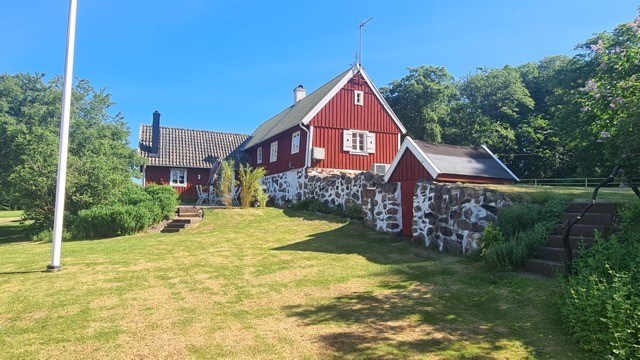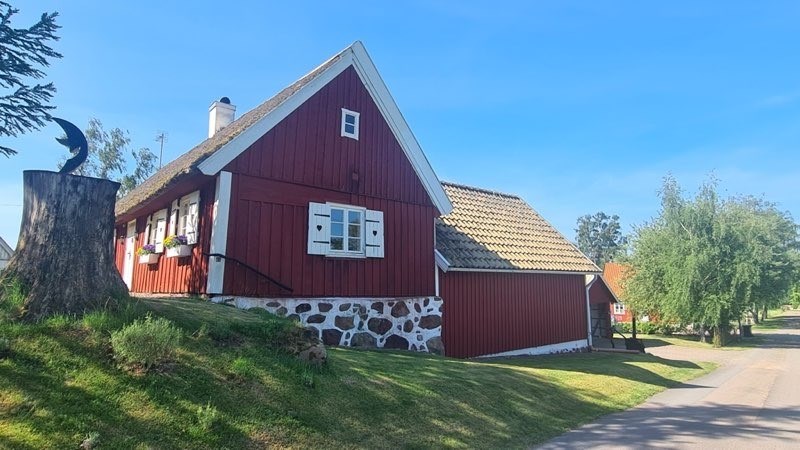Detta inlägg post publicerades ursprungligen på denna sida this site ;
Date:
Author: Stewart Prest, Lecturer, Political Science, University of British Columbia
Original article: https://theconversation.com/the-new-abnormal-debating-canadas-future-at-a-hinge-point-in-history-254675
Canadians watched the two leaders’ debates unfold last week in Montréal. The debates, and this election, occur at a pivotal moment in history. Canadians go to the polls as the future of global democracy and governance, and in fact the very independence of the country, is in the balance.
In crucial ways, the debates failed to meet the moment — and therefore will likely be forgotten as Canadians vote cast their ballots in a week. Unlike a past debate that focused on Canadian sovereignty between John Turner and Brian Mulroney in 1988, this one featured few knockout punches or memorable moments.
Shadows of the past
In the weeks prior to the debates, observers drew comparisons to that momentous English-language leaders’ showdown 37 years ago. That debate laid out a clear question for voters: Are you in favour of entering a free-trade agreement with the United States?
Prime Minister Mulroney was supportive of the agreement, while Liberal Leader Turner was sharply opposed, fearing for the country’s independence.
In the end, both Mulroney and Turner had a point. In the ensuing decades, free trade with the U.S. has brought both prosperity and dependence on the country as the Canadian economy became ever more deeply intertwined with that of the United States.
A hinge point in history
In 2025, we face an even more pivotal moment. The global order is shifting.
Under Donald Trump, the U.S. has moved away from its decades-old position at the heart of a liberal international order centred on western democracies to embrace a transactional and illiberal foreign policy built on the language of power.
Read more:
Like dictators before him, Trump threatens international peace and security
Given the gravity of the moment however, we heard comparatively little during the debates about how Canada must respond at this hinge point in history as Canadians adapt to a predictably unpredictable future.
The threat of economic tariffs, while real, are just the beginning. Leaders alluded to the fact that Canada’s erstwhile closest ally now constitutes a threat to Canadian sovereignty, but it was not a major point of discussion, even as the the White House Press secretary recently affirmed Trump still wants Canada to become the 51st state. Threats to the territorial integrity of other former American allies continue as well.
Viewers heard questions during the debate related to the possibility that the U.S. may no longer support Ukraine, but nothing about how Trump shocked the world with a very public dressing-down of Ukraine’s president or how he seems more comfortable co-operating with Vladimir Putin’s Russia.
Virtually no mention was made of the fact that the U.S. is, by some measures, no longer a democracy. Its courts are politicized. Congress is polarized. The federal civil service remains under siege, and key institutions of civil society are under pressure to conform to Trump’s demands. Nor was there any discussion about how the Trump administration is openly defying court orders, effectively flouting the rule of law, and what that could mean for Trump’s annexation threats against Canada.
There was some talk during the debate of Canada trying to reach the (Trump-demanded) NATO military target for military spending, but nothing about the fact that the future of the alliance is uncertain. European states are openly questioning the credibility of American support in the event of an attack and European leaders discussing defence strategies without American involvement for the first time since the Second World War.
Read more:
How could Canada deter an invasion? Nukes and mandatory military service
A debate like any other
It’s clear from such silences on the debate stage that Canadian voters, journalists, debate moderators and politicians alike are all still coming to terms with the depth of change in the world around them.
The debate was filled with talk of pipelines, housing strategies and domestic law and order. In fact, neither debate was much different from those of the past 20 years.
That’s not to suggest domestic challenges don’t require substantive discussion and policy proposals. As I and others have argued, the populist anti-incumbent wave that we saw sweeping Canadian and global politics in recent years can be traced to the sense that a portion of the population — younger voters in particular — feel left behind and ignored.
Read more:
Justin Trudeau’s bleak poll numbers are part of a global trend as young voters reject incumbents
The challenges are multiple and significant, including but not limited to housing and affordability, public safety and policing, slow economic development and the challenges of responding to climate change in an economy dependent on energy exports.
Nonetheless, in focusing so heavily on domestic and not global threats, the debate verged at times on the parochial.
Bloc leader Yves-François Blanchet, for instance, tried to keep provincial jurisdiction and Québec’s interests top of mind. NDP leader Jagmeet Singh’s message, at its most effective, was that as the country turns to face new challenges, it cannot forget about the marginalized in Canadian society and abroad. Worthy points, but secondary to the larger moment.
Ultimately, the debate was dominated by the other two men on the stage with a real chance to govern the country next week: Liberal Leader Mark Carney and Conservative Leader Pierre Poilievre.
The two appeared united in their passion for the country and pipelines, and share some other priorities, notably facilitating interprovincial economic integration.
Conservative base is divided
In other respects, the two leaders diverged significantly in their views. Of all the leaders, Carney was the most willing to discuss the Trump threat, including when he suggested in his closing English remarks that Trump is “trying to break us so the U.S. can own us.”
For the majority of the debates, however, the Liberal leader focused primarily on the economic threat. He argued that the country must look away from the U.S., and instead build inward with investment in housing and energy at home, and build outward by identifying more reliable markets and allies abroad.
Poilievre’s messaging was more nuanced, moving in different directions to suit different audiences. No doubt this is because the country’s Conservative voting base is itself deeply divided between mainstream conservatives who share their fellow Canadians’ concerns about Trump and a populist faction that tends to identify with the MAGA movement in numerous ways.
Read more:
Why some Canadians are in denial about Donald Trump
In attempting to square that circle, Poilievre has signalled strong opposition to Trump and his tariffs — a point he repeatedly discussed during the debate — and called for measures to enhance Canadian productivity, notably in the energy sector.
At the same time, however, he endorsed other policies that evoke aspects of Trump’s own political agenda, something he largely avoided mentioning during the debates. Notable among are Poilievre’s promised war on “woke” culture. While not discussed in detail during the debates, disruptive questions from right-wing media outlets following the French debate illustrated just how close to the surface such issues remain.
The ‘new abnormal’
In the absence of a significant gaffe, knockout blow or other dramatic twist, the debates are unlikely to change many minds, and seem likely to soon fade from memory.
Initial post-debate polling suggests as much. Anyone leaning one way or another heard enough to affirm their views as they tuned into the debates, and nothing to make them question their choice.
Answers to larger questions about how Canada should move forward in this emergent new global order, amid daunting new threats to peace and democracy, remain only hinted at. Whoever wins the election, those questions will continue to be asked with increased urgency in the coming years.
![]()
Stewart Prest does not work for, consult, own shares in or receive funding from any company or organisation that would benefit from this article, and has disclosed no relevant affiliations beyond their academic appointment.

